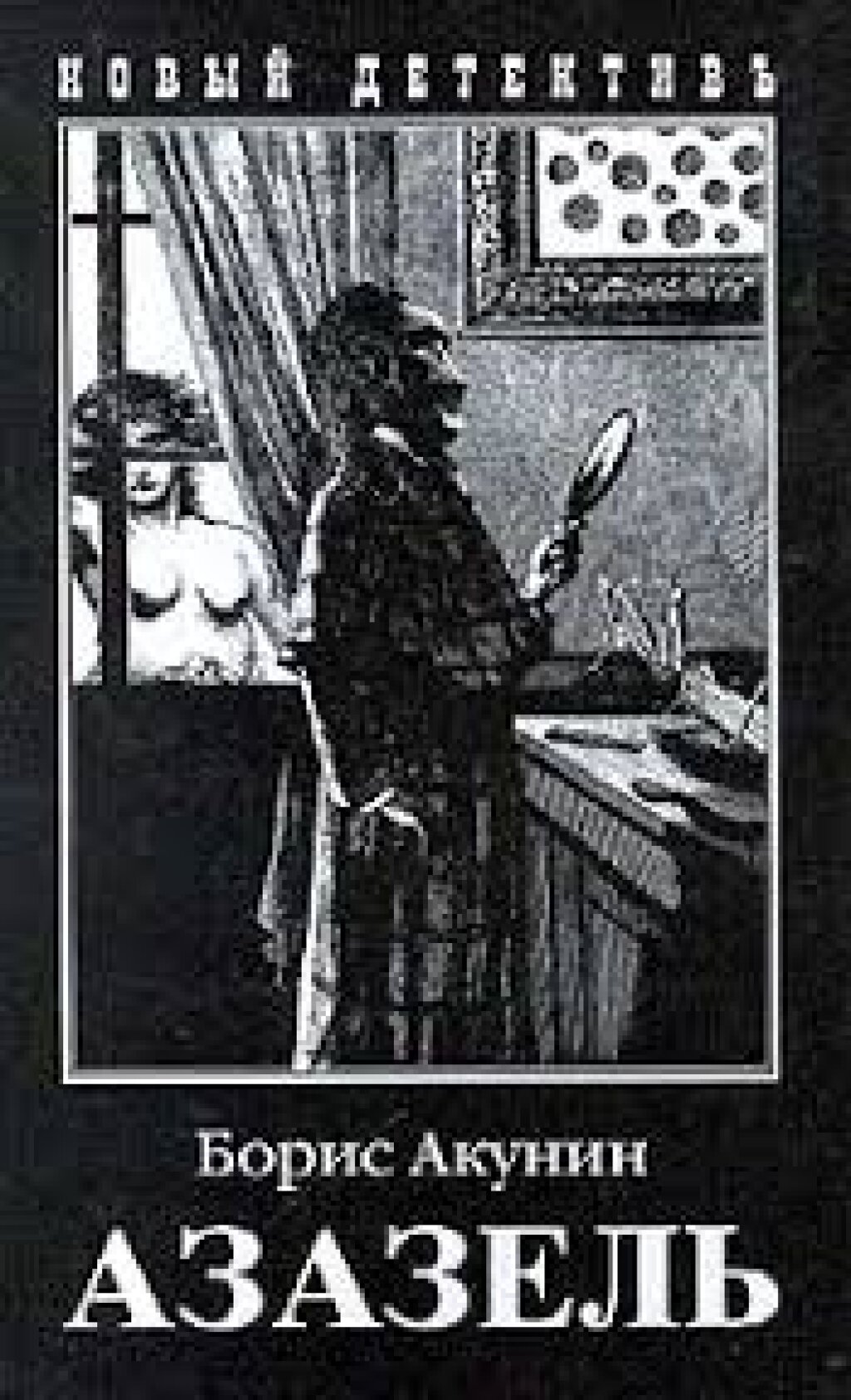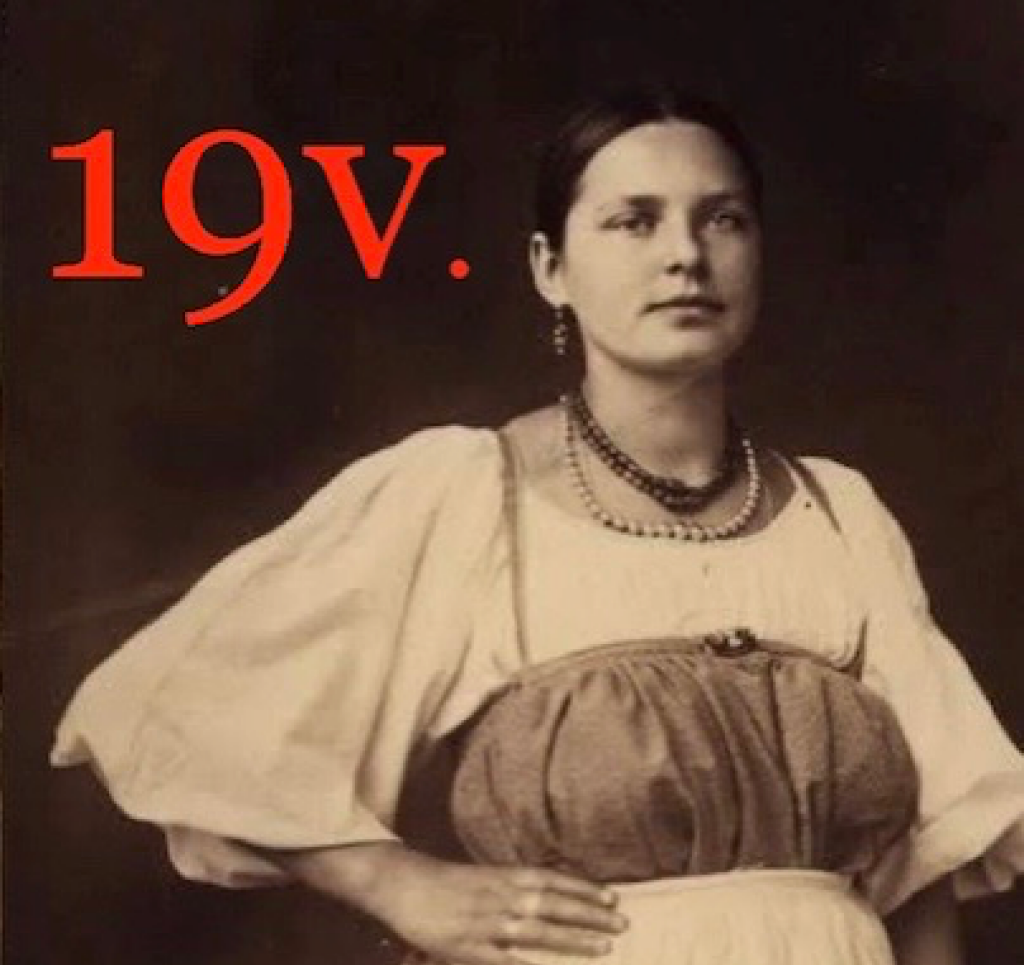This is the second installment of "Rereading Akunin" focusing on The Winter Queen. For the introduction to the series, and subsequent installments, go here.
“The Adventures of Erast Fandorin” are very much of their time—or rather, times, since the action takes place in the last part of the nineteenth century while the books' publication begins on the cusp of the twentieth and twenty-first. Akunin’s is not just giving the nineteenth century a backward’s glance; it’s a full-fledged staring contest between the ages, with readers waiting to see who will blink first.
Everything about the series’ fascination with the nineteenth century is characteristic (if not symptomatic) of the late twentieth and early twenty-first, a period when, as Kirill Kobrin and Mark Lipovetsky argue, Russian writers rapidly lose interest in the present in favor of the past. Of course, stories that take place in the past are never only about the past—they inevitably reflect the concerns of the times that produced them. This reflection is often unintentional, but there is plenty of room for making deliberate points.
The great cliché of the last two decades of the Russian twentieth century is expressed in the title of Stanislav Govorukhin’s 1992 film The Russia We Have Lost, a tendentious work that sets high stakes for thinking about the country’s past. Akunin’s approach is rather different. His nineteenth century is not necessarily a better world in all ways, but it is a delightful place to visit. A better metaphor than Govorukhin’s for the Fandorin series is suggested by a much more entertaining film that came out the following year: Yuri Mamin’s Window to Paris (1993), in which residents of a St. Petersburg apartment building discover that one particular window allows them to travel to Paris and back. Akunin gives his readers a window to the nineteenth century, and, as in the case of Mamin’s film, this window is two-directional: as we read the stories set in the past, we can always look over our shoulder and see the present.
Akunin’s view into late-tsarist Moscow is spruced up by some very flattering window treatments. Thus the tag-line for the series when it was first brought out by the Zakharov publishing house:
Памяти XIX столетия, когда литература была великой, вера в прогресс безграничной, а преступления совершались и раскрывались с изяществом и вкусом.
[In memory of the 19th century, when literature was great, faith in progress was boundless, and crimes were committed and solved with elegance and taste.]
This is good writing and brilliant marketing, in that it defines the series setting and lays out its appeal, telling us what kind of 19th century we will be spending our time exploring. This doesn’t actually require that we believe the 19th century was like this. In fact, as the series goes on, it will frustrate readers who want to idolize the pre-revolutionary past, especially in Coronation, but when the first book comes out, one could be excused for expecting an entirely rosy picture (after all, The Winter Queen was released the same year as Nikita Mikhalkov’s Barber of Siberia).
At the same time, the marketing copy situates the Fandorin series as part of a particular post-Soviet publishing phenomenon: the literary “project.” This, in turn, reinforces the message about the 19th century: if you like it, and keep buying the books, then the 19th century may last quite a long time (twenty years spread across two millennia, as it turns out).
Chapter Two and Three
Chapters Two and Three are both short, and neither provides great grist for the analytical mill. As the subtitle for Chapter Two tells us, this section “consists entirely of conversation.” Fandorin and Grushin argue about this particular suicide, and suicide in general, as they continue their performance of the generation gap, 1870s edition. As they examine the multiple reports of men brandishing guns, they ponder two hypotheses: Kokorin (the suicide) went from place to place, trying his luck until the bullet finally got him, or he belonged to “some secret society of suicides” (Fandorin’s suggestion, which Akunin quickly files away for a later novel). Grushin gives Fandorin permission to question a witness.
In Chapter Three, First, Fandorin gets a description of a man during a frustrating conversation with a shopkeeper, and then goes on to interview the young lady and her German governess from the first chapter. The governess (the ‘spinster “Pfuhl) is a familiar German caricature, complete with mispronounced Russian and an obsession with order. But the young lady (whom Fandorin can’t help but think of as “Lizanka”) captures the imagination, heart, and various and sundry organs of our hero.
Having dispensed with the plot, we should note a couple of points that reinforce the principles behind the Fandorin project, mostly having to do with the aforementioned “taste.”
The events of Chapter One were, on the face of it, quite bloody: a man blows his brains out. What could be more 90s than that? The best-selling Russian mysteries I read at the time moved from rapes to dismemberments with all the grim determination and self-loathing of compulsive late-night binge eating. But in the beginning of The Winter Queen we see all the ways in which witnesses tried not to see the suicide happen. One of the first things we learn about Fandorin is that he fainted at the sight of a murder victim’s slit throat. In Chapter Three, when Fandorin is trying to determine whether one man brandished a gun at several different sites in Moscow before the suicide, or whether it was a group of different men, he realizes the simplest way to see exactly what the dead man looked like would be to go the morgue and examine his corpse:
Erast Fandorin imagined the gaping skull with the crust of dried blood and brains, and an entirely natural association brought back the memory of the merchant’s wife Krupnova with her throat cut, who still continued to visit him in his nightmares. No, he definitely did not wish to make the trip to the “cold room."
So just a few chapters in, we are reassured that we, like our hero, will not have to see anything remotely like this. This Fandorin joint is a class act.
Some minor observations:
— When Grushin hears that the man had to click the gun several times before getting to the lethal bullet, he remarks, “I read somewhere that it’s called American roulette.” Yes, and all Russian obscene language is actually Tatar.
— Poor Andrew Bromfield. When the shopkeeper refers to the student as a “скубент”, he is forced to create the mangled word “skewdint.” But it never makes sense to pretend that a word that can be mispronounced in one language would be mispronounced in another: “student” seems like a part of the English language in a way that “студент” might not have seemed all that Russian to an uneducated native speaker in the nineteenth century. I even did a Google search to see if maybe “skew dint” was some British slang I didn’t know, but the only hits that came back were from The Winter Queen.



